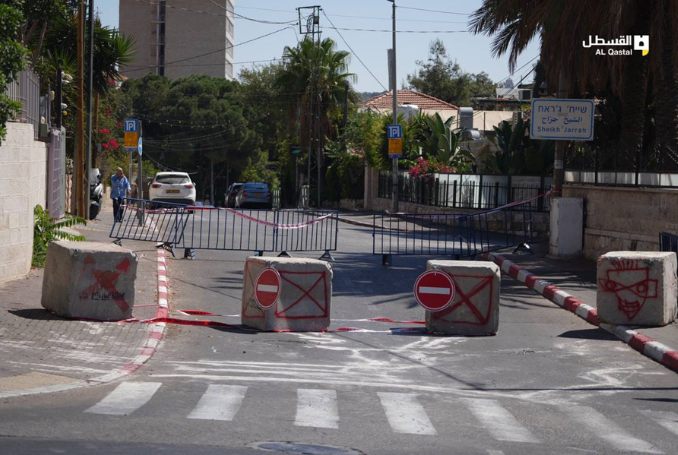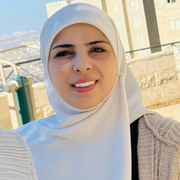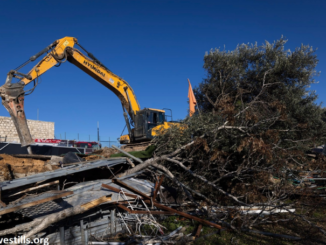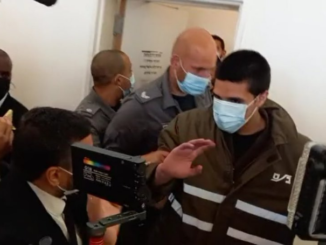
Every time that Israel celebrates a Jewish holiday, new restrictions are imposed on Palestinians. But what is the relationship between both events and what do Palestinians experience during these times?
Closed roads, blocks of concrete, military checkpoints, strict inspections, and total movement restrictions: these are part of the unbearable measures Palestinians have to endure whenever Israeli Jews celebrate their holidays.
Israelis celebrate many Jewish holidays throughout the year, each lasting for several days at a time. On every occasion, Palestinians are subjected to measures that can only be described as racist, which severely affect their everyday life.
Tariq al-Hashlamoun has been living in the Old City of Jerusalem for forty years. His house is located only 100 meters away from Al-Aqsa Mosque. This close proximity made the Palestinian man and his family constantly vulnerable to Israeli violations, especially during Jewish holidays.
Life Suspended
Israeli police impose daily restrictions on Palestinian residents of Jerusalem. But the situation becomes even more dire during Jewish holidays and other religious occasions.
Al-Hashlamoun goes to Al-Aqsa Mosque to pray every day. However, during Jewish holidays, Israeli soldiers prevent him from entering the grounds of the compound, because he falls within the age category which is not allowed to pray during specific periods.
“When holidays begin, we know that reaching Al-Aqsa, which is adjacent to my house, becomes very difficult,” al-Hashlamoun told The Palestine Chronicle.
“They impose restrictions on us so that Israeli settlers can storm the compound undisturbed,” he added.
Ahead of Jewish holidays, Israeli forces usually launch mass arrest campaigns targeting Palestinian activists in the Jerusalem areas, and other visitors of Al-Aqsa Mosque.
Some Jerusalemites are even deported during certain periods to ensure that they are not present during the Israeli settlers’ incursions into the holy Mosque.
Al-Hashlamoun said that the Israeli police become even more aggressive against Muslim worshippers during Jewish holidays. They roam the alleys of the Old City, confiscating bags, clothes, and items bearing any image of Al-Aqsa, the Crescent Moon, or Islamic verses.
“During these days, Islamic tourism to Al-Aqsa is suspended,” al-Hashlamoun told us.
“The mosque guards are prevented from approaching groups of settlers, and the entrances to the Old City are turned into military checkpoints. Israeli soldiers check all identity cards and arrest anyone they deem to be suspicious.”
Moreover, Israeli settlers attack Palestinian shops in the Old City. They destroy the merchandise on display and assault the owners in front of the Israeli police, who do not intervene to stop them.
“Palestinians have to endure these barbaric attacks,” al-Hashlamoun said, explaining that this is a regular occurrence without any accountability to the settlers.
“We cannot go to sleep during their celebrations. They scream and dance all the time, destroying any Palestinian property while we are confined to our homes and cannot even stand on our balconies.”
Iron Windows of Al-Khalil
The situation is not much different in the Old City of Hebron (Al-Khalil), where Israeli settlers took over several homes and buildings.
The Ibrahimi Mosque, which is located in the heart of the Holy City, was divided by Israeli authorities between Muslim and Jewish worshippers following the 1994 massacre, when Baruch Goldstein, a Jewish extremist settler, killed 29 Palestinian worshippers inside the mosque.
During Jewish holidays, life stops for Palestinian residents.
Daily life in Hebron is already difficult, but during Jewish holidays Israeli authorities impose even more restrictions on Palestinian residents.
Issa Amro, a Palestinian activist in the Old City of Hebron, told The Palestine Chronicle that Jewish holidays are an opportunity for Israeli settlers to extend even more control over the city.
Amro explained that the Israeli army installs more than 120 iron barriers and electronic gates around the Ibrahimi Mosque to prevent Palestinians from entering.
“After the massacre in 1994, the mosque was divided between Jewish and Muslims worshippers. However, during Jewish holidays, only Israeli settlers have access to it,” Amro said.
On normal days, Palestinians are already subject to restrictions. Every month, the Israeli army prevents the Muslim call for prayer at least 50 times, without providing any reason.
“During the holidays, all crossings are closed and Palestinian workers are prevented from entering the territories occupied in 1948,” Amro said.
“Even workers holding permits are prohibited from crossing checkpoints. All these measures are designed to enable Israelis to move freely while suffocating the Palestinians,” he said.
During Jewish holidays, Israeli settlers gather in front of the Ibrahimi Mosque and perform prayers, dancing and singing.
Meanwhile, Palestinian residents can only look through the thick iron grating of their windows, without having the opportunity to enter their mosque.

– Fayha’ Shalash is a Ramallah-based Palestinian journalist. She graduated from Birzeit University in 2008 and she has been working as a reporter and broadcaster ever since. Her articles appeared in several online publications. She contributed this article to The Palestine Chronicle.







